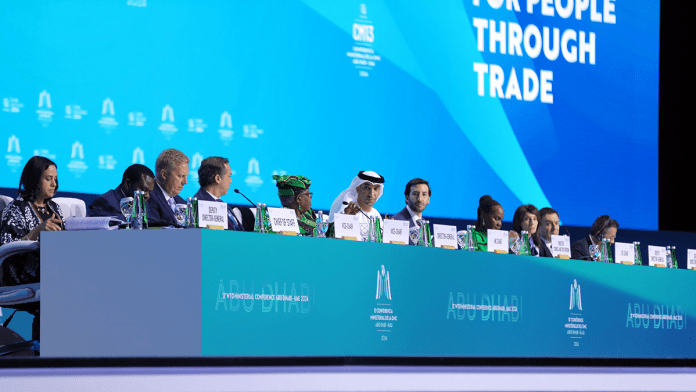News in Brief:
– WTO’s 13th Ministerial Conference (MC13) concludes without an agreement on agricultural reform, impacting vulnerable countries and local farmers.
– Despite the EU’s efforts, divergences and unrealistic demands stall progress; as the union reiterates committnent to future negotiations.
In a disappointing turn of events, the 13th Ministerial Conference (MC13) of the World Trade Organization (WTO) concluded in Abu Dhabi without an agreement on advancing agricultural reform.
Despite the European Union (EU) and other members’ dedicated efforts to find common ground, divergences proved insurmountable, leaving the most vulnerable countries, particularly local farmers, at a disadvantage.
Stalemate amidst constructive engagement
Despite constructive and pragmatic engagement from the EU and other members, no consensus could be reached on crucial aspects of agriculture reform. The EU, a successful net exporter of agri-food products, expressed keen interest in a well-functioning trade system.
However, unrealistic demands from certain WTO members, coupled with fundamental divergences, thwarted progress. The most formidable challenge centered around agreeing on a permanent solution for public stockholding programs, essential for domestic food security but potentially detrimental to global agricultural trade.
The EU went to great lengths to address concerns related to subsidies affecting trade. Notably, reforms in the Common Agricultural Policy (CAP) ensured that EU subsidies have a positive contribution to environmental protection goals and do not adversely impact global trade. The union also sought outcomes favourable to the most vulnerable countries, emphasising exemptions for least developed countries from export restrictions on food and fair trade for African cotton producers.
Unresolved issues and future commitments
While the conference concluded without a breakthrough, the union remains committed to continuing agricultural negotiations. Priorities include exempting least developed countries from export restrictions on food and ensuring fair trade practices.
Despite geopolitical and food security challenges, the EU advocates for a rules-based international agricultural trading system. The discussions at MC13 underscore the necessity of working towards realistic, inclusive, and balanced outcomes in future agricultural reforms, with an eye towards the next conference.
As the WTO members grapple with the aftermath of MC13, the focus shifts towards MC14. The need for realistic, inclusive, and balanced outcomes in agricultural reform becomes paramount. Against the backdrop of geopolitical and food security crises, the EU reaffirms its commitment to a rules-based international agricultural trading system, emphasising the importance of finding common ground for the benefit of local farmers and global trade stability.



